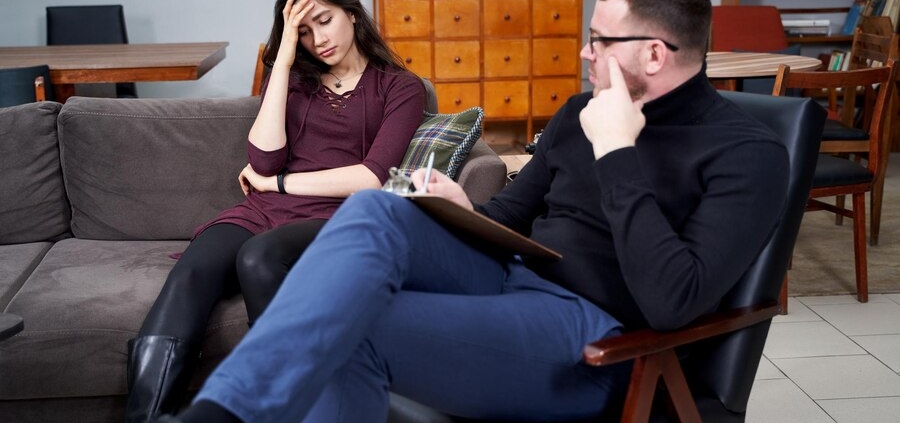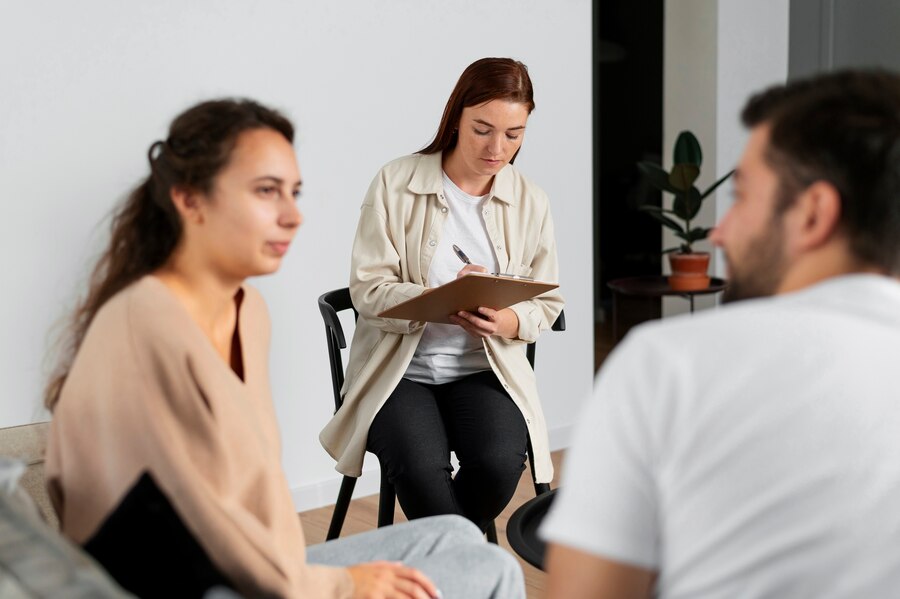Navigating the complexities of a relationship can be challenging, even for the most committed couples. The intricate dance of balancing individual needs, shared goals, and mutual understanding often demands more than just love and good intentions. This is where therapy steps in as a potent ally. Couples rehab centers, which specialize in treating both relationship dynamics and individual issues, offer a comprehensive approach to healing and growth. Understanding the different types of therapies available, and knowing how to balance them effectively, can be pivotal in achieving lasting change and harmony.
This article explores the significance of therapy in fostering healthy relationships, delves into the various therapeutic options available at couples rehab centers, and provides insights on how to strike the right balance between couples and individual therapies. Whether you’re seeking to strengthen communication, build trust, resolve conflicts, or address personal issues, finding the right therapeutic mix can make all the difference. In the following sections, we will break down the importance of therapy in relationships, examine the specific types of therapies offered, and outline strategies for creating customized treatment plans that cater to the unique needs of each couple.
Importance of Therapy in Relationships
In the intricate dance of human relationships, therapy serves as both a mirror and a guide, reflecting the underlying dynamics and providing a structured path toward healthier interactions. Whether a couple is dealing with minor disagreements or deep-seated issues, the importance of therapy in relationships cannot be overstated. Here, we explore three critical facets of how therapy can enhance and sustain relational bonds: strengthening communication, building trust, and resolving conflicts.
Strengthening Communication
Communication is the bedrock of any healthy relationship. Misunderstandings and unexpressed feelings can create chasms between partners, leading to emotional distance and resentment. Through therapy, couples learn effective communication skills that foster open, honest, and empathetic dialogues. Therapeutic interventions often include exercises that teach active listening, non-verbal communication cues, and the articulation of needs and desires. By practicing these skills in a safe and guided environment, couples can break down barriers and build a stronger, more transparent connection.
Building Trust
Trust is the cornerstone of relational stability and intimacy. Without it, relationships can become fraught with suspicion, insecurity, and emotional withdrawal. Therapy provides a platform for rebuilding trust that may have been eroded by past betrayals or ongoing issues. Therapists employ various techniques to help couples understand and address the root causes of distrust. This may involve exploring past experiences, setting realistic expectations, and developing consistent, trust-building behaviors. Over time, the therapeutic process helps partners to re-establish a sense of safety and reliability within the relationship.
Resolving Conflicts
Conflict is an inevitable part of any relationship, but it doesn’t have to be destructive. The way couples handle disagreements can either strengthen their bond or drive them apart. Therapy equips couples with conflict resolution strategies that promote understanding and compromise rather than blame and escalation. Techniques such as conflict mapping, role-playing, and guided mediation help partners navigate their differences constructively. By fostering a problem-solving mindset and encouraging emotional regulation, therapy enables couples to address conflicts in ways that contribute to long-term relational health.
In summary, therapy plays a vital role in fortifying relationships by enhancing communication, rebuilding trust, and providing tools for effective conflict resolution. These foundational elements not only help couples overcome existing challenges but also prepare them to face future obstacles with resilience and unity.
Types of Therapies Offered
In the context of couples rehab, a diverse array of therapeutic modalities is made available to address the unique needs of both partners and individuals. This section explores the various types of therapies offered, each designed to foster healing, growth, and a deeper connection within the relationship.
Couples Therapy
Joint sessions form the cornerstone of couples therapy, providing a structured environment where both partners can openly discuss their issues. These sessions are facilitated by a trained therapist who guides the conversation, ensuring that each partner feels heard and understood. The goal is to foster a safe space where both parties can communicate effectively, paving the way for mutual understanding and resolution.
Couples therapy employs an array of therapeutic techniques tailored to the specific needs of the couple. Techniques such as Emotionally Focused Therapy (EFT), Cognitive Behavioral Therapy (CBT), and the Gottman Method are commonly used. EFT focuses on identifying and transforming negative emotional patterns, while CBT aims to change dysfunctional thinking and behavior. The Gottman Method, on the other hand, emphasizes building a sound relationship house through trust and commitment.
The primary goals of couples therapy are to enhance communication, rebuild trust, and resolve conflicts. Successful outcomes often include improved relationship satisfaction, enhanced emotional intimacy, and the development of effective problem-solving skills. By addressing deep-seated issues and fostering a collaborative approach, couples can achieve a more harmonious and fulfilling relationship.
Individual Therapy
- Personal Issues and Growth
Individual therapy is crucial for addressing personal issues that may be affecting the relationship. These could include past traumas, mental health disorders, self-esteem issues, or personal stressors. By working through these challenges on a one-on-one basis, individuals can achieve personal growth and emotional stability, which, in turn, positively impacts the relationship.
One-on-one sessions provide a confidential space for individuals to explore their thoughts, feelings, and behaviors. This personalized approach allows the therapist to tailor interventions specifically to the individual’s needs, fostering a deeper understanding of oneself and promoting personal healing and growth.
Integration with Couples Therapy
The insights and progress gained from individual therapy are often integrated into couples therapy sessions. This holistic approach ensures that both partners are working not only on their relationship but also on their personal well-being. The integration of individual and couples therapy creates a comprehensive treatment plan that addresses the needs of the relationship from multiple angles.
Group Therapy
Group therapy offers a unique opportunity for couples to engage with others who are facing similar challenges. The support and understanding from peers can be incredibly validating and encouraging. Group sessions provide a sense of community and shared purpose, reinforcing the notion that the couple is not alone in their struggles.
Sharing experiences in a group setting allows couples to gain new perspectives and insights. Hearing about others’ journeys can shed light on their own issues, often leading to moments of realization and empathy. This collective learning process can be a powerful catalyst for change and growth.
Facilitated by a skilled therapist, group discussions are structured to ensure that they remain productive and respectful. These discussions often revolve around common themes such as communication, trust, and conflict resolution. The therapist’s role is to guide the conversation, provide professional insights, and help participants draw meaningful connections between their experiences and their relationships.
By offering a variety of therapeutic approaches, couples rehab ensures that each couple can find the right mix of interventions to meet their unique needs. Whether through joint sessions, individual therapy, or group support, the goal is to create a balanced and effective treatment plan that fosters lasting relationship health and personal well-being.
Finding the Right Balance
Achieving the right balance between couples and individual therapies is crucial for the success of treatment programs at couples rehab. This balance ensures that both partners can work on their relationship as a unit while also addressing personal issues that may influence their partnership. Here are some strategies and considerations in finding the right equilibrium:
Assessment and Evaluation
The journey to finding the right balance begins with a comprehensive assessment and evaluation. Upon entering couples rehab, both partners undergo thorough psychological evaluations and interviews. These assessments help therapists understand the dynamics of the relationship, individual mental health issues, and the specific needs of each partner. This initial step is vital as it lays the groundwork for a customized treatment plan that effectively integrates both couples and individual therapies.
Customized Treatment Plans
Based on the assessment results, therapists develop customized treatment plans tailored to the unique circumstances of each couple. These plans outline the frequency and type of therapy sessions—whether they are joint, individual, or group sessions. For instance, a couple experiencing severe communication issues might benefit from more frequent joint sessions, while individuals dealing with personal trauma may require additional one-on-one therapy. Flexibility is key, allowing the plan to evolve as the couple progresses through their rehabilitation journey.
Ongoing Monitoring and Adjustment
Finding the right balance is not a one-time task; it requires ongoing monitoring and adjustment. Therapists regularly check in with both partners to evaluate their progress and address any emerging issues. This continuous feedback loop allows for the dynamic adjustment of treatment plans, ensuring that both individual and relationship needs are being met effectively. Additionally, therapists can incorporate new therapeutic techniques or shift the focus of sessions based on the evolving needs of the couple.
Ultimately, the goal of finding the right balance at couples rehab is to create a harmonious and supportive environment where both partners can thrive. By carefully assessing needs, crafting customized treatment plans, and continuously monitoring progress, Couples rehab programs can ensure that both individual and relationship goals are achieved, leading to healthier, more fulfilling partnerships.
Couples and Individual Therapies at Couples Rehab
Navigating the complexities of relationships requires dedication, understanding, and sometimes, professional guidance. Couples rehab centers offer a sanctuary where both individuals and their relationships can thrive through a balanced approach to therapy. By integrating couples therapy, individual therapy, and group therapy, these centers address the unique needs of each partner while also fostering a healthier, more harmonious relationship.
The journey to finding the right balance begins with a thorough assessment and evaluation, ensuring that each couple receives a customized treatment plan tailored to their specific circumstances. Regular monitoring and adjustments to these plans help maintain progress and address any emerging issues, ensuring that therapy remains effective over time.
Ultimately, the goal of couples rehab is not just to resolve conflicts but to build a stronger foundation of trust, communication, and mutual respect. By investing in both individual growth and relational health, couples can emerge from therapy better equipped to face life’s challenges together. The right balance of therapies can transform relationships.










![couples addiction help in Lafayette[z] Louisiana couples addiction help in Lafayette[z] Louisiana](https://couplesrehab.com/wp-content/uploads/2023/08/couples-addiction-help-in-Lafayettez-Louisiana-180x180.jpg)


